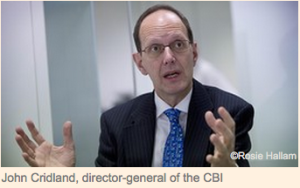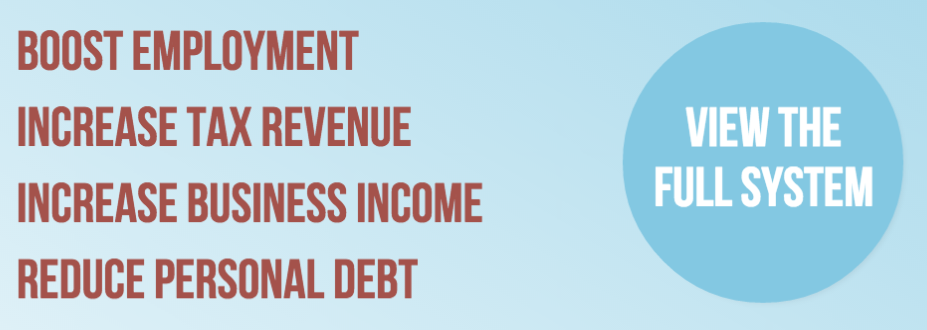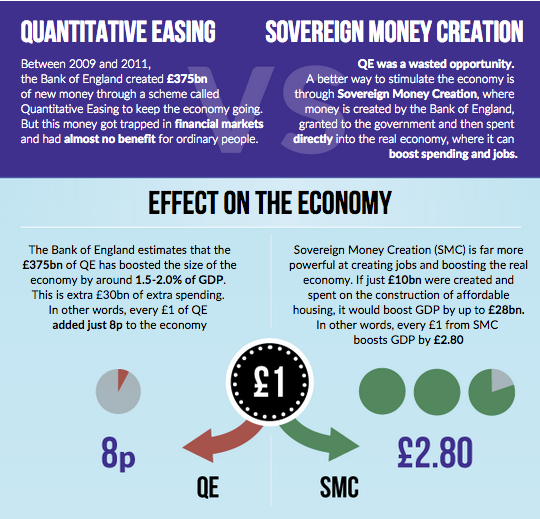More investment in infrastructure without any increase in borrowing or taxes


The Director General of Britain’s primary business lobby group, Confederation of Business Industry CBI, says that the next government should invest in infrastructure, but without further borrowing.
“We don’t support more borrowing,” said director John Cridland, just before the launch of a business manifesto for the first 100 days of the next government. “Additional capital spending [in the next parliament] should be fully funded. The primary duty of government is to make sure that the deficit is tackled.”
Since 2009 capital investment by the government has shrunk by one third in real terms, from £57 billion in 2009-2010 to £42 billion in 2013-2014.
During that period, the Bank of England created £375 billion of new money through Quantitative Easing. But this money was not spent on infrastructure or other projects that would benefit the UK. Instead, it was injected into the financial sector, as the Bank of England used the money to buy bonds from pension funds, insurance companies and other financial market companies.
The Bank of England hoped that some of this money would eventually trickle down into the real economy, and that by making the wealthy even wealthier, they would be encouraged to go out and spend more. But in practice this money creation helped fuel a bubble in financial markets. By the Bank of England’s own estimates, QE in the UK pushed up share and bond prices by around 20%. Because around 40% of stock market wealth is held by the wealthiest 10% of households, QE has made that wealthiest 10% better off by around £128,000 per household. Since then, the richest 20% of people in the UK have increased their wealth by 57%, whilst the poorest 20% have seen their wealth fall by 46%.
Whereas QE in the UK relied on flooding financial markets and hoping that some of this money would ‘trickle down’ to the real economy, Positive Money’s “Sovereign Money” proposal would work by injecting new money directly into the real economy.
A Sovereign Money system would therefore be able to respond to Director Cridland’s demand for more investment in infrastructure, without any increase in borrowing or taxes. Instead of creating billions of pounds for the financial markets, whilst simultaneously cutting spending in infrastructure, newly created sovereign money could be used to fund government spending, on things like infrastructure or renewable projects. Ultimately, this new solution could be 37 times more effective than QE at increasing GDP.
Just in case you are reading this Director Cridland, for a more in depth explanation of how a Sovereign Money system would work see Sovereign Money Creation.

Download Here (Free, PDF, 60 pages)
